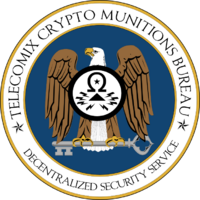More privacy related thoughts.
Our governments abuse of its power is nothing new and it will not end. It is in the nature of any large governing bureaucracy be it corporate, civil or federal. Clearly the frenetic pace which technology has advanced over the last couple of decades has afforded the government an opportunity to take advantage of a gap in the public’s understanding of the true nature of these technologies and the potential consequences of their use. Because I’m a bit if a geek it’s clear to me on a daily basis how little people understand about the technology they use and depend on on a daily basis. It may not be so important to understand the workings of your refrigerator but when it comes to the way you share and communicate all aspects of your life you really need to understand whats going on. Most of us are voluntarily contributing to a massive information store that is the result of such daily activities as using cell phones, texting, internet phone calling, emailing, credit cards, grocery store discount cards, movie rentals, online purchases, ATM withdrawals, DMV auto inspections, EZ-Pass toll payments, airline/train travel and more. Some of these situations seem benign, however all of them result in some amount of data being collected, transmitted and stored on a computer in a database somewhere. Do you know who knows every item you purchased at Shop Rite for the last 5 years you’ve been using your membership savings card there? Did you even know that someone has that information? Perhaps you don’t care, after all its only a grocery list. But take all the databases for all the activities I mentioned and start putting them together and your life story is suddenly patent knowledge. What you read, what you eat, how much gas you put in your car and where you go, how much cash you tend to have in your purse and the people you talk to most on weekly basis, how much money you owe and how much you drink, what kind if driver you are and how long you have owned your home. Such is the way we exist to lesser or greater degrees but we do live is a digital world and digits are very cheap to store and very valuable depending on the end user. Life with these amenities is quite nice. It affords many conveniences and efficiencies. The problem is that we trade our privacy for convenience and often without the understanding that we are doing so. When was the last time you agreed to a terms of service by clicking that “I Agree” button? Did you actually read the entire “Terms of Service” document? Never. Try it sometime, you will be shocked at what you are agreeing to. The truth is, in most cases, we don’t control or even own any of this information and we have expressly given away all rights to it forever.
In this recent article by the EFF there are some examples of how privacy can be violated by the government and your service providers. The article focuses on abuses but what strikes me most is that much of the abuse is facilitated by what I hope is the general misunderstanding of the tech we use every day rather than a blatant disregard for our own privacy as a citizenry.
This portion of the report referenced in the article caught my eye and highlighted my concern.
In over half of all NSL violations reviewed by EFF, the private entity receiving the NSL either provided more information than requested or turned over information without receiving a valid legal justification from the FBI. Companies were all too willing to comply with the FBI’s requests, and — in many cases — the Bureau readily incorporated the over-produced information into its investigatory databases. For example, in a violation reported in 2006, the FBI requested email header information for two email addresses used by a U.S. person. In response, the email service provider returned two CDs containing the full content of all emails in the accounts. The FBI eventually (and properly) sequestered the CDs, notified the email provider of the overproduction, and re-issued an NSL for the originally requested header information; but, in response to the second NSL, the email provider again provided the FBI with the full content of all emails in the accounts.
The failure in the bureaucratic process outlined in this example here is completely preventable, not by a more lawfully compliant FBI or a more adept service provider but a more informed and better equipped citizen. Like Uncle Ben told Peter, “with great power comes great responsibility”, the information age is our superpower. Let’s not destroy ourselves with it.


![[FSF Associate Member]](http://www.hx4.com/wp-content/uploads/2015/03/FSF-52816.png)

